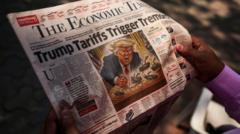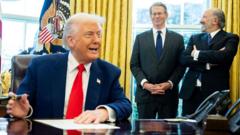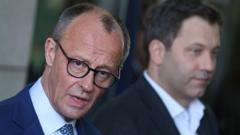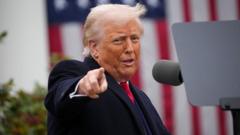In light of the recent political upheaval, Germany braces for an accelerated campaign with significant implications for the economy and leadership.
German Coalition Collapse Triggers Early Election Announcement

German Coalition Collapse Triggers Early Election Announcement
As Chancellor Scholz's government dissolves, a snap election is scheduled for February 23, 2025.
After the collapse of Chancellor Olaf Scholz’s ruling coalition, political leaders have swiftly agreed to hold a snap election on February 23, 2025. This election date occurs approximately seven months earlier than initially planned and follows a tumultuous week that saw Scholz dismiss his finance minister, Christian Lindner, thereby effectively dissolving the coalition with the Free Democratic Party. The haste to go to the polls comes after the opposition, led by the conservative Christian Democratic Union, successfully argued that Scholz could achieve little with a minority government in place.
In recent remarks, Scholz emphasized his determination to campaign for a second term, even amid a politically charged atmosphere. As Germany faces pressing economic challenges and prepares for potential shifts in international relations with the anticipated second term of former President Donald J. Trump, the upcoming election is poised to ignite intense political maneuvers. All parties involved are already mobilizing their strategies for the upcoming campaign, solidifying an unpredictable landscape for German politics in 2025.
In recent remarks, Scholz emphasized his determination to campaign for a second term, even amid a politically charged atmosphere. As Germany faces pressing economic challenges and prepares for potential shifts in international relations with the anticipated second term of former President Donald J. Trump, the upcoming election is poised to ignite intense political maneuvers. All parties involved are already mobilizing their strategies for the upcoming campaign, solidifying an unpredictable landscape for German politics in 2025.






















